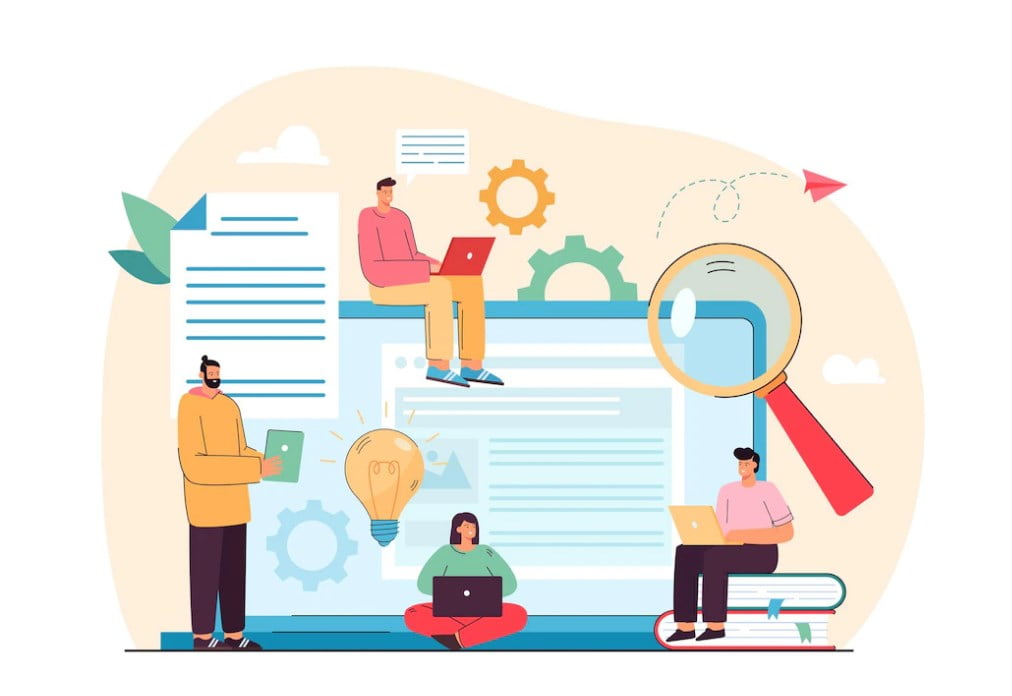Table of Contents
URL Canonicalization Best Practices
URL canonicalization is the process of choosing the URL which is most appropriate to search engines. It can help eliminate duplicate content. However, there are instances where this procedure could be detrimental to a site. For those looking to avoid these issues, this article will explain the best methods for the URL canonicalization. In the end, it’s your decision which method is best for your site. You can employ one or both.
 URL Canonicalization is the process of selecting the best URL for search engines.
URL Canonicalization is the process of selecting the best URL for search engines.
Canonicalization is the process of choosing a single URL for your site over many variants. It’s among the most essential tools used for SEO. Because URLs are distinct however they all connect to the same place It’s crucial to pick one that is reliable and easy to use. There are several options to select the most appropriate URL, but the most effective approach is to pick the canonical URL.
There are many reasons to adopt canonicalization. One of the primaries is to prevent duplicate content. If two versions of the same page have the same content the search engines declare them duplicate content. Canonicalization can help avoid this issue by giving search engines the version of the page that should appear in the search results and which version should get the traffic.
The presence of duplicate content on websites is a big problem for SEO. A large amount of duplicate content could make search engine spiders ignore what’s original. Additionally, large quantities of duplicate content lower the ranking of a website. Canonicalization helps to prevent this by combining link signals with Canonical URLs.
Canonicalization is an SEO method that lets you optimize your website’s pages by selecting the most appropriate URL for each web page. It aids search engines to identify duplicate content and decreases the possibility of selecting the incorrect URL. This technique allows you to keep track of your crawl budget and also keep the most important aspects of your website within Google’s main index. For this, utilize your URL Inspection Tool in order to identify which version of your website is the official one. If you’re unable to choose two URLs using redirects any other techniques could be the ideal option.
Canonicalization lets you choose one URL that is the original version of your website’s content. In this way, when people visit the same URL, they’ll be aware of where to locate it. Canonicalization can also provide a solid base for your content marketing.
It assists in removing duplicate content
URL Canonicalization is a crucial technique that lets search engines discern multiple versions of a web page. It stops duplicate information from getting indexable and informs search engines of which URL is most preferred. This is particularly beneficial for websites that have multiple variants, for example, wine websites that have multiple category pages as well as specific versions for each country.
Duplicate content is commonplace online and can impact the search engine performance of your website. It could happen when the URL system of your website creates different versions of the identical page. In other instances, it may be the result of the optimization of your page or a website’s migration. In certain cases, duplicate content could be the result due to a badly configured web server or website structure.
To verify if your website is canonicalized, visit your web page. Select the right-click menu on the right-hand side of your browser and choose “Show Page Source”. This will bring up the source page, which contains an HTML code. At the very top of the page, search for the tag rel=”canonical”.
URL canonicalization may be difficult to integrate into some website CMS software. A better solution is to implement redirection 301. This technique is more efficient than canonicalization as it stops Google’s crawling multiple versions. Additionally, 301 redirections point to a particular subdomain or protocol and are able to handle as high as 90 percent of duplicate content issues.
URL canonicalization is a crucial process to remove duplicate information from your site. If it is done correctly it can improve your website’s ranking in search engines and increase the quality of your content. Google along with other major search engines strive to offer the best experience for their customers. It is not common to find multiple pages of content when you first lookup results.
Another option is to make each website unique. In this way, you will ensure that your products feature distinctive product descriptions that are important for your buyers and your ranking on search engines. You can also look for duplicate content by making use of Google Search Console. Once you’ve done that you’ll get the Index Coverage report in which you can determine the content that is duplicate.
It is important to keep in mind it is that using a singular URL won’t be the ideal choice for any circumstance, because Google might interpret it as false. The most efficient method of avoiding sending mixed signals is to make use of an official URL. Make sure that all links within your website are pointing towards this particular URL.
 It could be harmful
It could be harmful
URL canonicalization is needed when your website has several versions of the same page with the same content. It could result from the use of content management systems or web expansion. The negative impact of duplicate content is SEO and reduces ranking. Canonicalization is a way to reduce duplicate content as well as consolidate links to Canonical URLs.
The process of URL canonicalization is very delicate. If done incorrectly, it could cause damage to your site. There are a few possible issues that could arise from URL canonicalization. It can create duplicate content penalties. In this scenario, it is possible that search engine robots assume that two URLs contain the same content, but this is not the situation.
If you’re not a programmer, You can utilize the URL Parameter tool of Google to block the URL parameter you want to exclude from results. But, it’s important to be aware that incorrect configurations in GSC could cause your site to be poorly indexed. To avoid this, be sure you include the URL for page B within your canonical tag.
Another mistake that people often make is to create a non-canonical version of a URL. This can cause Google to believe that the page is duplicate and wastes the crawler’s budget. If this occurs it will redirect the user to the original URL. This can be detrimental to SEO and can lead to the loss of important traffic.
In the case of URL Canonicalization, ensure that you follow the instructions attentively. The aim is to prevent your website not being damaged by duplicate content. If you own more than one URL it is best to always utilize both. This will stop your site from losing its rank in search results.
What is the best time to make use of URL canonicalization? This is a difficult problem and not one you should be tackling lightly. Utilizing canonical tags can assist in organizing your website and make it SEO-friendly. If used correctly they can be very useful. If your website is brand expanding and new it is important to ensure that you properly utilize them.
URL Canonicalization is a Best Practice in SEO that could improve the rank of your site. The procedure of adding a canonical URL on your website can help search engines understand which version of your page is preferred. Although it’s not mandatory for every site it will help boost your ranking in the SERPs.
It’s a decision
URL canonicalization is a technological solution for managing duplicate content. The problem of duplicate content is for SEO since search engines don’t know which pages to include in their results. In the end, they could rank your site lower. With an authoritative URL, you are able to inform search engines what version of your site to show in the results.
Making a canonical URL can be the most effective solution to duplicate content issues. There are many ways to accomplish this. One option is to redirect all variations to this. Another option is to make use of the robots.txt file. This method is suggested when there are pages that must not show up in the results of a search, such as pages on terms and conditions, or product description pages.
Another reason to use canonicalization occurs when you have duplicate content from different domains. Certain scraping and resharing websites make use of this technique. These sites can curate articles that are in a particular field. In these instances, it’s crucial to ensure that the canonical URL links to the original site from which the article originated. In the same way, it is important to ensure that hyperlinks to the second version of the content are counted toward an official canonical URL.
Utilizing a canonical URL will ensure that duplicate content is not classified as the same content in search engines. Search engines penalize websites with duplicate content. Canonicalization is essential for any marketer, regardless of the size of their business. With the proliferation of duplicate content problems, it’s essential to understand Canonicalization. You can download a no-cost SEO Checklist by clicking here. The checklist includes 101 steps to enhance the SEO of your site. It also offers a free trial.
A major error that many users make is to only use an official canonical URL for the first page in a paginated series. You must create a canonical URL on every page of the paginated series. This prevents duplicate content from the site and helps to detect duplicate content problems.
URL Canonicalization is a crucial method to use for SEO. Google suggests it for all websites and not using canonical URLs could result in duplicate errors in content. It is possible to use an SEO plugin called Rank Math SEO plugin to add the canonical URL to your website’s URL.
In conclusion, URL canonicalization emerges as a critical and nuanced facet of effective SEO strategy. This process, designed to select the most appropriate URL for search engines, plays a pivotal role in eliminating duplicate content and ensuring the optimal indexing of your website by search engines. The multifaceted nature of canonicalization necessitates a careful and informed approach.
The primary motivation behind URL canonicalization is to prevent the SEO-detrimental issue of duplicate content. Search engines, in the presence of identical content on multiple URLs, may declare them duplicates, adversely impacting a website’s ranking. By implementing canonicalization, website owners can guide search engines toward the preferred version of the content, thus mitigating the risk of duplicate content penalties and optimizing traffic distribution.
It’s essential to recognize that the impact of URL canonicalization extends beyond the mere prevention of duplicate content. This SEO method allows website owners to optimize individual pages by selecting the most appropriate URL for each, facilitating improved search engine discernment. By incorporating canonical URLs, one can effectively manage crawl budgets, keep critical website components within the main index of search engines, and enhance overall SEO performance.
However, the implementation of URL canonicalization requires precision. Incorrect configurations may lead to unintended consequences, such as duplicate content penalties and poorly indexed websites. Care must be taken to avoid common pitfalls, including creating non-canonical versions of URLs, which can confuse search engines and negatively impact SEO efforts.
Website owners must also consider the potential challenges associated with integrating URL canonicalization into Content Management Systems (CMS) and weigh the effectiveness of alternative solutions such as 301 redirections. It’s crucial to stay vigilant and regularly assess the effectiveness of canonicalization efforts through tools like the URL Inspection Tool in Google Search Console.
Ultimately, the decision to employ URL canonicalization rests on the unique circumstances of each website. While it stands as a recommended best practice by search engines, it’s imperative to evaluate the specific needs and characteristics of your site. Whether redirecting all variations to a canonical URL or using robots.txt for specific exclusions, the chosen approach should align with the site’s structure and content strategy.



 URL Canonicalization is the process of selecting the best URL for search engines.
URL Canonicalization is the process of selecting the best URL for search engines. It could be harmful
It could be harmful

